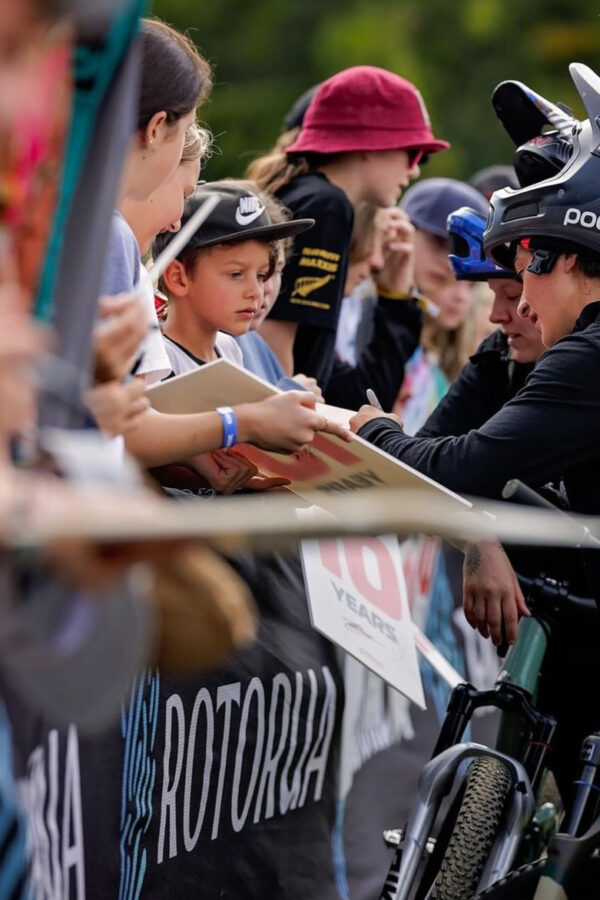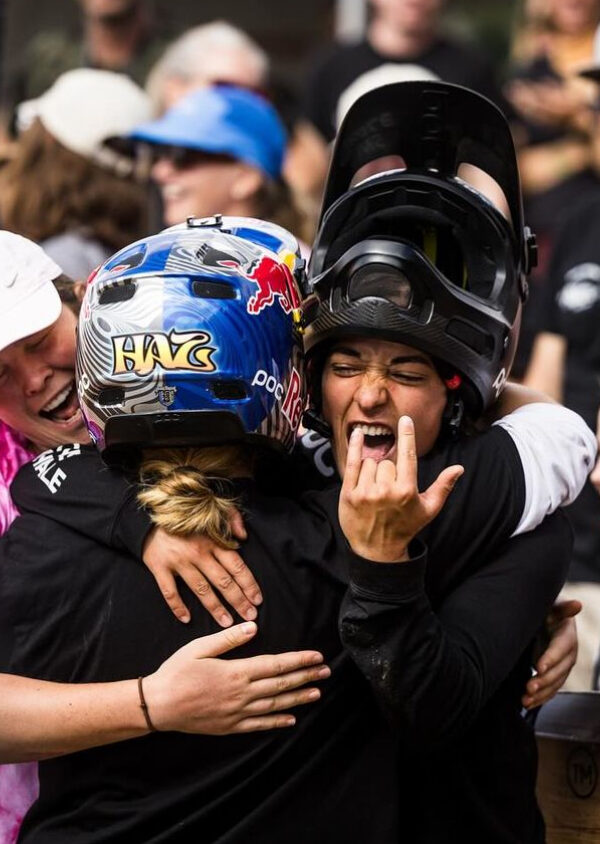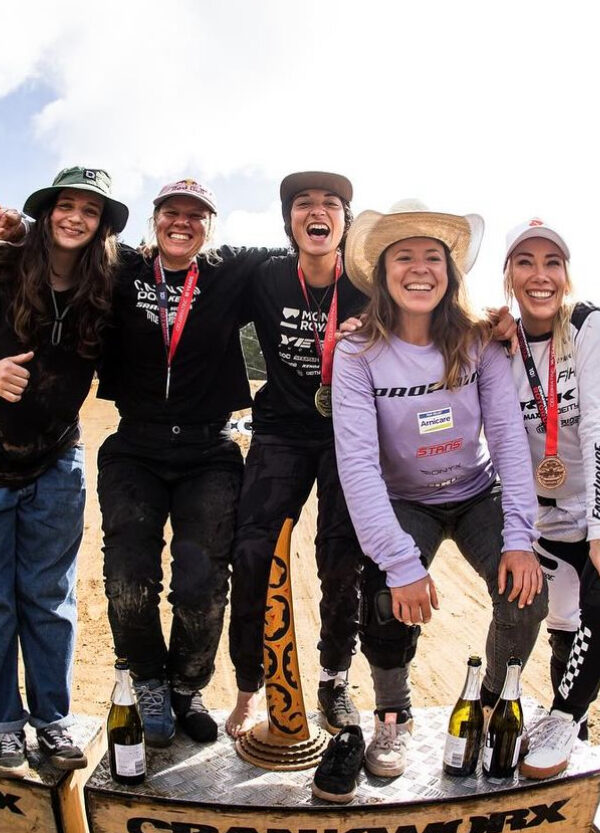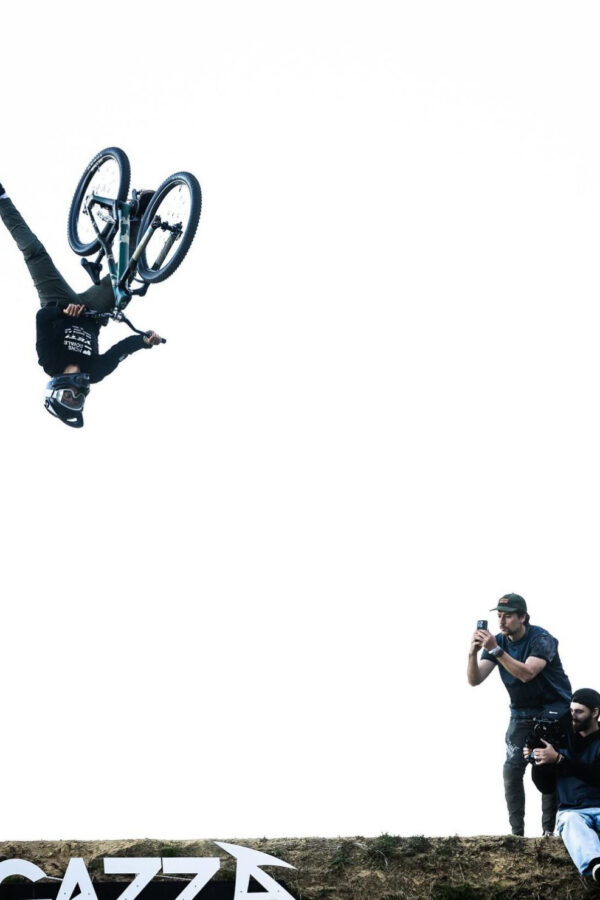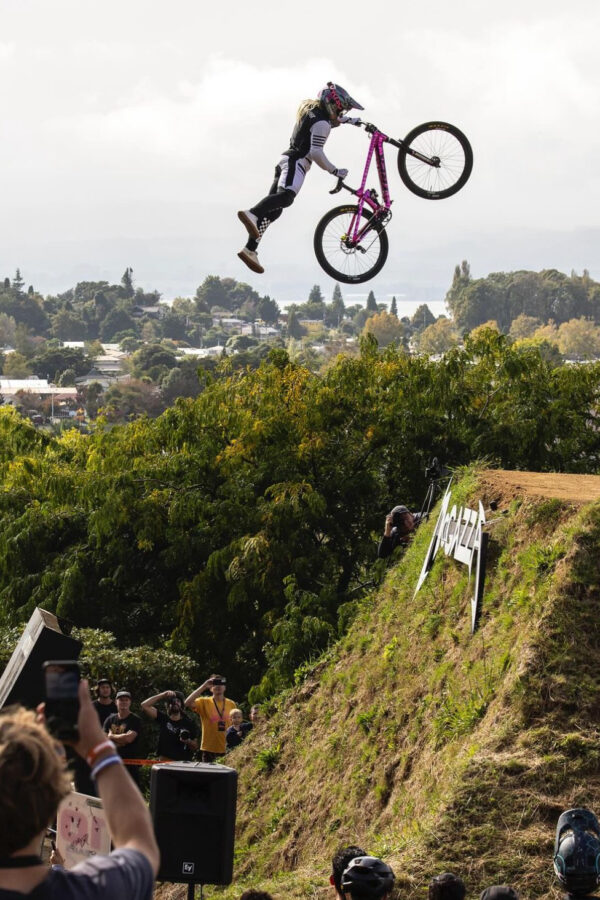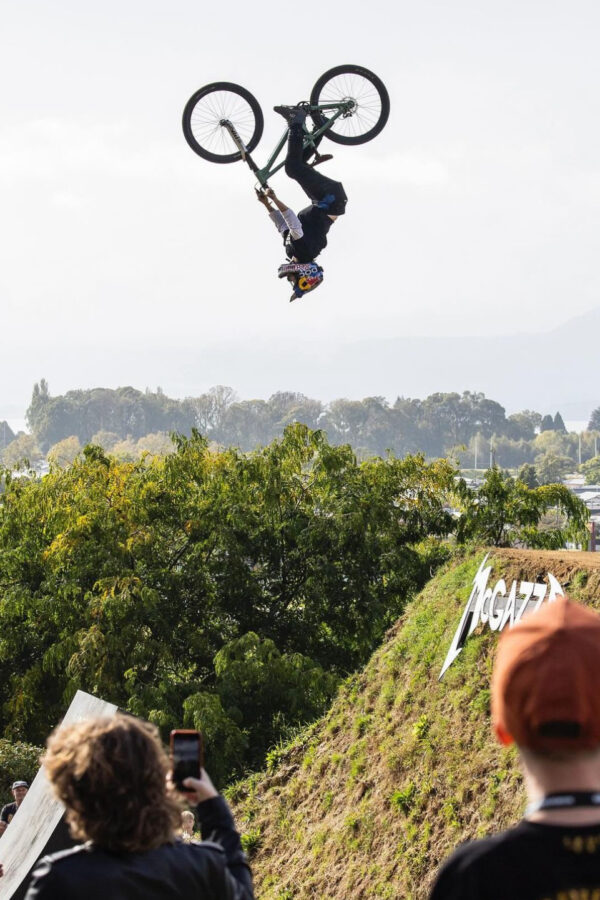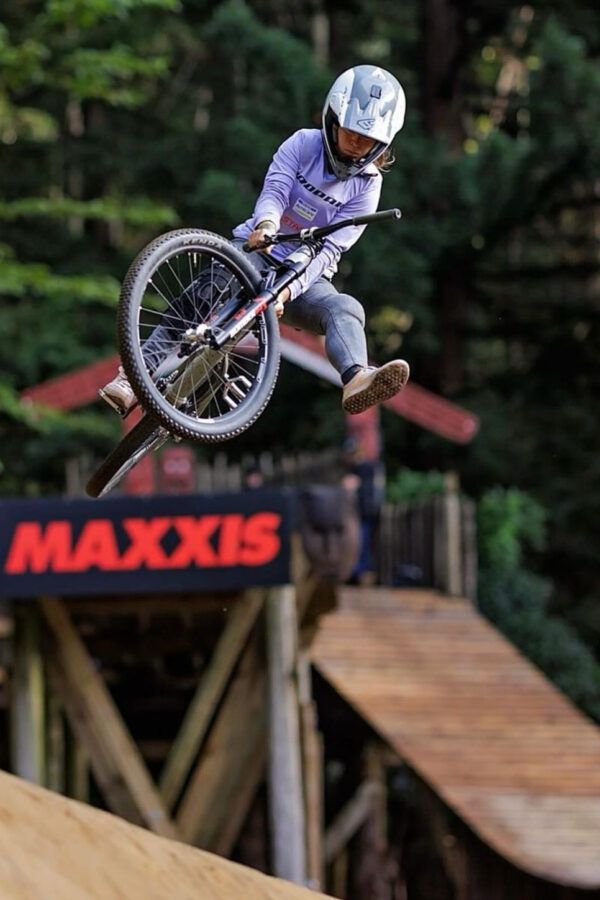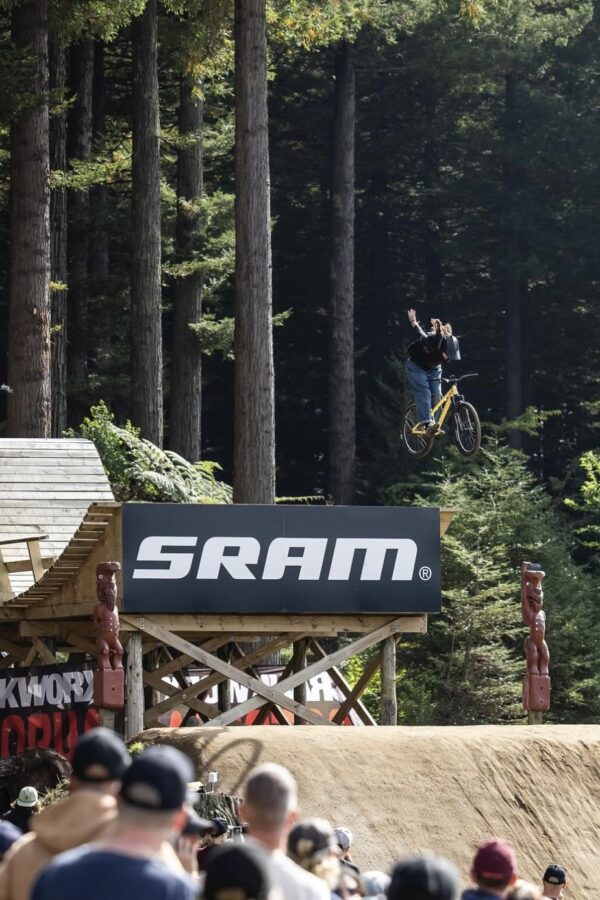A First for Women-Slopestyle History at Crankworx
Words by Beka
Last week was a historic moment in New Zealand: for the first time ever, women competed in the Crankworx FMBA Slopestyle World Championship (for more backstory on this event, check out the article here). Riders Robin Goomes and Harriet Burbridge-Smith, who just recently returned from the epic freeride showcase event Darkfest, placed 1st and 2nd, respectively, in the slopestyle competition. Caroline Buchanan (3rd), Natasha Miller (4th) and American rider Shealan Reno (5th) also partook in the historic event.
The dynamics of the entire event were, well, complicated. The practice days leading up to the event included both the men and women sessioning the competition features. Then, the day before the competition, a bomb dropped: the men announced that they would not be riding. Click here to watch the press conference that breaks down why the men made this decision, plus the Crankworx response.
In short, the men had been in talks with Crankworx regarding specific rider demands, and when those demands were not met, the riders made the unanimous decision to opt out of the competition. It’s important to recognize, however, that despite the riding strike, the men made it clear that they would be trackside during the event to show support for the women riders, acknowledging that their inclusion in this event was indeed historic.
Many online commenters mused that the women riders should have opted out of the competition to show solidarity for rider demands. Given the complicated topic, it’s important to recognize that the men made it clear to show rider support for the women’s decision to compete. However, the slopestyle competition now being a women-only event definitely added an unexpected element to the already complex event.
Watching the women ride in such a groundbreaking event was pretty damn inspiring. We know that competition breeds innovation and progress, so this is just one step towards continuing the progression of women’s mtb. Similarly to what women have been asking for at Rampage, the ladies were given their own category at Crankworx and would not compete against the men (had they ridden).
Comparatively, using practice footage as a reference point, the men’s skill set was far more advanced than the women’s, with men performing complicated combinations of tricks that are truly baffling. However, the intention was never to stack the women against the men – only to provide an opportunity for them to ride alongside them.
Like I’ve found myself saying before, mountain biking isn’t pie – including women doesn’t limit the opportunities for men. The ladies who competed at Crankworx are some of the best riders in the entire industry, not just in slopestyle.
Robin Gomes and Harriet Burbridge-Smith just recently rode at the biggest freeride showcase event in the world, Darkfest (read more about that here), while Shealan Reno and Natasha Miller both have extensive bmx history. For the men who are historic slopestyle winners at Crankworx (like 4x defending champion Emil Johansson), they have built their careers on being professional slopestyle riders. The slopestyle division of mountain biking has, until now, not existed for women to even compete in, which gave men a 10+ year head start.
A sidebar fact worth noting: Robin Gomes, sponsored by Yeti, rode on a prototype dirt jumper made specifically for her for this event – Yeti doesn’t even have a dj in their production line up. Meaning: she won in a slopestype competition on a bike she has no extensive history training on.
These are just a few examples of how epic it’s been to see women’s progression in mountain biking, and there has been a huge show of support from big brand leaders and industry leaders in men’s mountain biking. But I find myself asking, then why is there still prevalence for men to publicly diminish this progress? Being heavily involved in the mtb social media scene, the barrage of disparaging comments towards the women’s event was… gross. Remarks on the female rider’s bodies, calling the broadcast “completely boring,” and comparing the event to “watching the kid’s jump line” littered a slew of social media posts from mtb industry leaders like Pink Bike and Red Bull.
While it’s a given that the internet has been and forever will be littered with online trolls whose sole purpose is to create discourse, these comments seemed intent on diminishing the women’s accomplishments. The Female Athlete Project recently posted an IG reel in collaboration with Deakin University discussing a landmark research study that revealed some unfortunate, albeint unsurprising, data: 9 out of 10 elite female athletes are subjected to or witness online harm solely based on being women. It’s disappointing information, and yet I bet many women reading this are not shocked.
I have always held the mtb industry to such a high standard due to the utmost significance it has in my life, so it was hugely disappointing to witness such vitriol coming from men regarding women’s progression – maybe it’s naive, but I always thought that mtb was “better than that.” My hope is that by allowing more women to participate in global competitions, it will eventually become the next standard for the industry. Hopefully, we’re in the beginning stages of that – and in turn, the end stages of dismissing the hard work it’s taken to get here.
